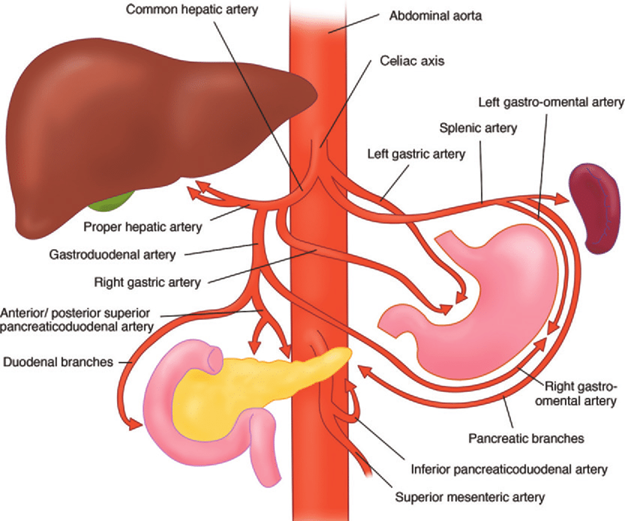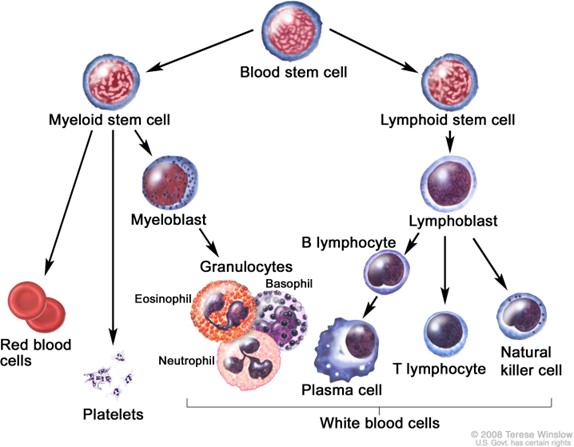The type of resistance that is acquired as a result of developing a disease is:
Naturally acquired passive immunity.
Naturally acquired active immunity.
Artificially acquired active immunity.
Artificially acquired passive immunity.
The Correct Answer is B
Naturally acquired active immunity is the type of resistance that is acquired as a result of developing a disease.
This means that the immune system produces antibodies to fight off the infection and remembers the pathogen for future protection.
This type of immunity is long-lasting and sometimes life-long.
Choice A is wrong because naturally acquired passive immunity is the type of resistance that is acquired when a person receives antibodies from another source, such as from the mother through the placenta or breast milk.
This type of immunity is temporary and lasts only for a few weeks or months.
Choice C is wrong because artificially acquired active immunity is the type of resistance that is acquired when a person receives a vaccine that contains a weakened or killed form of the disease organism.
This triggers the immune system to produce antibodies and memory cells without causing the actual disease.
This type of immunity can last for years or decades, depending on the vaccine.
Choice D is wrong because artificially acquired passive immunity is the type of resistance that is acquired when a person receives antibody-containing blood products, such as immune globulin, that provide immediate protection from a specific disease.
This type of immunity is also temporary and lasts only for a few weeks or months.
Nursing Test Bank
Naxlex Comprehensive Predictor Exams
Related Questions
Correct Answer is A
Explanation
The celiac artery supplies blood to the liver, spleen, and stomach.

It is one of the three major branches of the abdominal aorta, along with the superior mesenteric artery and the inferior mesenteric artery.
The celiac artery divides into three branches: the left gastric artery, the splenic artery, and the common hepatic artery.
Choice B is wrong because the brachiocephalic artery is a large vessel that arises from the aortic arch and supplies blood to the right side of the head and neck and the right arm.
It has no connection to the liver or spleen.
Choice C is wrong because the renal arteries are paired vessels that arise from the abdominal aorta and supply blood to the kidneys.
They are located below the superior mesenteric artery and above the inferior mesenteric artery.
Choice D is wrong because the tibial arteries are branches of the popliteal artery that supply blood to the lower leg and foot.
They are located in the posterior and anterior compartments of the leg.
The normal range of blood pressure in the celiac artery is about 100-120 mmHg systolic and 60-80 mmHg diastolic.
The normal range of blood flow in the celiac artery is about 200-300 ml/min. The normal diameter of the celiac artery is about 5-7 mm.
Correct Answer is B
Explanation

B cells are a type of lymphocyte that originate from the bone marrow and are involved in humoral immunity.
When they encounter a foreign substance (antigen), they differentiate into plasma cells, which secrete antibodies.
Antibodies are proteins that bind to the antigen and neutralize it.
Choice A is wrong because megakaryocytes are large cells that produce platelets, not antibodies.
Choice C is wrong because antibodies are not cells, but products of plasma cells.
Choice D is wrong because T cells are another type of lymphocyte that originate from the thymus and are involved in cell-mediated immunity, not antibody production.
Whether you are a student looking to ace your exams or a practicing nurse seeking to enhance your expertise , our nursing education contents will empower you with the confidence and competence to make a difference in the lives of patients and become a respected leader in the healthcare field.
Visit Naxlex, invest in your future and unlock endless possibilities with our unparalleled nursing education contents today
Report Wrong Answer on the Current Question
Do you disagree with the answer? If yes, what is your expected answer? Explain.
Kindly be descriptive with the issue you are facing.
